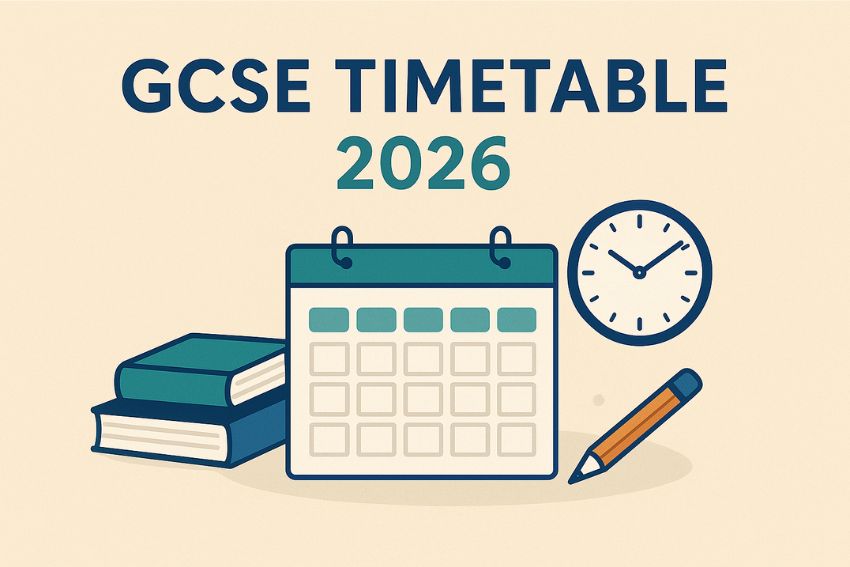Every summer, as the sun warms the landscapes and students anxiously await their A-level results, a familiar debate resurfaces: Are A-levels getting easier? This question, laced with undertones of concern and curiosity, stirs both educators and the general public alike. But, is there any truth to this recurring question? Is the climb to academic success less steep than it was in yesteryears, or are students merely adapting better to the climb itself?
So, let’s embark on this enlightening journey together, unraveling the nuances of this annual debate, to shed some light on the debate if A-levels are really getting easier and go through all a levels ranked in order of difficulty.
All A Levels ranked by difficulty
Difficulty varies by student and school. Grade boundaries shift yearly to maintain standards. Exam boards also refine specs and assessment to improve clarity. That can feel like change, not softness. Overall, A Levels remain demanding. Success comes from smart revision, consistent practice, and genuine interest.
Often seen as toughest:
- Further Maths
- Maths
- Physics
- Chemistry
Also very demanding:
- Biology
- Computer Science
- Economics
- Modern and Classical Languages
Essay-heavy and analytical:
- History
- English Literature
- Psychology
- Philosophy
Creative and practical intensity:
- Art and Design
- Drama and Theatre
- Music
- Design and Technology
Tip: choose subjects you enjoy and need for future plans. Fit matters more than hype.
Public Perception
When broaching the topic of the perceived ease of A-levels, it’s essential to first address public opinion. According to a study by Ipsos in 2022, a considerable proportion of UK adults, around 44%, believe that A-levels have become easier than when they took them. This sentiment seems to echo more strongly among older demographics, with 52% of 55-75-year-olds and 49% of 45-54 year-olds of the same opinion.
The perception of exams getting easier isn’t exclusive to those who sat their exams decades ago. The same study found that even 35-42% of the younger age groups, those aged 35-44 and 18-34 respectively, believe A-levels are less challenging now.
Men appeared slightly more inclined than women to share this view, with 51% versus 37% believing that exams are easier now. This disparity suggests that the perception of A-level difficulty may also vary with gender.
While these numbers reveal a public sentiment tending towards the notion of A-levels getting easier, it’s critical to remember that public opinion is merely one aspect of the broader picture. Perception can be influenced by various factors, such as personal experiences, exposure to anecdotal evidence, or even societal narratives. In the following sections, we’ll explore other aspects like statistical trends and changes in the exam structure, to present a more holistic view on the matter.
A Historical Comparison
Examining the topic historically provides some context. A YouGov poll from 2013 already found a divergence in opinions, with younger individuals believing A-levels had become more difficult while the older population held the opposite view. Since then, changes in the exam structure and study resources, like the increased access to technology, have continued to fuel the debate.
For instance, comparing the Information and Communications Technology (ICT) A-level from the 1970s to its contemporary counterpart provides an intriguing contrast. In the past, ICT students had to manually code onto paper tapes, with every minor mistake causing significant problems. The lack of computers in schools led to a more theory-based curriculum and essay-centered exams. Now, despite technological advancements and a shift in the curriculum, only 10% of students achieved an A or A* in 2022, suggesting that the subject remains challenging.
When looking at overall A-level grades, however, a different story unfolds. In the 1970s, less than 1% of students achieved three A grades. In stark contrast, by 2014, more than one in eight students accomplished this feat, despite the exam boards’ reported efforts to toughen the exams.
These improvements could be attributed to various factors, from enhanced teaching methods and better study resources to a higher pressure on students due to increased competition for university places.
Interestingly, the grades for A and A* in the years from 1982 to 2019 have steadily increased. In 1982, the percentage of students achieving these grades was 8.9%. Fast forward to 2019, and this percentage has almost tripled to 26%.
This growing number of top grades over time, coupled with the evolving nature of the subjects themselves, further complicate the matter. It leaves us wondering whether these higher grades are a result of exams getting easier, or are they instead a testament to students leveraging the tools and resources available to them to better their performance.
Changes in Examination Structure and Tools
Over time, there have been significant shifts in the structure and format of examinations. The way exams are designed today is notably different from decades ago. For instance, multiple-choice questions have become more prevalent, and there’s been a shift towards fewer extended essays. These changes could lead to the perception that exams are easier as students might be able to guess their way to the correct answer more often in multiple-choice questions.
The A-level exams have also undergone changes in terms of the questions’ complexity and the amount of material students are expected to learn. Despite this, many argue that exams haven’t necessarily become easier; instead, the skills they assess have changed. For instance, contemporary exams may put more emphasis on understanding and applying concepts rather than simply remembering facts.
Furthermore, the tools available to students have drastically evolved. The technological revolution has made a profound impact on education, fundamentally changing how students learn and prepare for exams. Research, once a painstaking process of scouring through books in libraries, has been replaced with internet search engines that provide information within seconds. Calculators have expedited mathematical calculations, saving time during exams.
Access to past exam papers, online tutorials, and digital learning aids have also improved the ability of students to prepare more effectively. All these tools have potentially made studying and exam preparation more efficient, leading to better performance.
The proliferation of technology and its role in learning could explain the improved student performance over the years. However, it’s also important to note that access to technology and these resources does not equate to exams being ‘easier’ – instead, students may just be better prepared and more equipped to handle them.
However, with this progression comes the question: Does this technological advantage make exams easier, or are students merely adapting to a modern educational environment? In the next section, we will explore this question further, considering the pressure that modern students face.
The Role of Pressure and Increased Effort

Over the years, competition for university places and employment opportunities has intensified. This increased pressure has arguably pushed students to work harder and strive for higher grades, potentially leading to an overall rise in A-level performance. So, are A-levels getting easier, or are students just working harder?
Today, the stakes are high for students. The perception that strong A-level grades are critical for university admission and subsequent job prospects has added a new dimension to the educational landscape. Students often view A-levels as a gateway to their future, a notion that fuels their commitment to achieve top grades.
This increased effort isn’t limited to studying harder. Students are also becoming savvier about how they study, leveraging technological tools and resources to improve their efficiency and effectiveness. They’re utilising online resources, revision apps, and even social media study groups to boost their knowledge and exam technique.
It’s also worth noting that societal expectations and norms have changed over time. Today, a significant proportion of students are expected to progress to higher education, whereas this wasn’t necessarily the case in previous generations. This shift has arguably led to students feeling increased pressure to perform well in their A-levels, which could be contributing to the trend of improving grades.
Furthermore, the increased focus on university education and the expanding job market’s demands for higher qualifications mean that A-level students are under more pressure than ever to succeed. The effort they put into studying for these important exams shouldn’t be downplayed.
However, one can argue that increased pressure and effort alone are not enough to account for the improved grades. It’s crucial to consider other factors like improved teaching methods, additional support mechanisms, and changing exam structures to paint a more accurate picture. In the next section, we will delve into the role of teaching and support in student performance.
The Argument of Playing the Game
Examinations, in essence, are a form of game. They test not just the knowledge of the examinee but also their ability to understand and master the format and expectations of the examination itself. This factor is often overlooked in discussions about the perceived ease of A-levels.
The accusation that exams have evolved from testing knowledge to being a game against exam boards has emerged in recent years. This argument suggests that exams have shifted from focusing on a student’s understanding and original thinking towards rewarding students who are adept at mastering the ‘rules’ of the exam. This might include understanding the specific marking scheme, knowing how to structure answers to maximise points, or being aware of the topics most likely to be questioned.
Some of the critics argue that the introduction of a higher number of multiple-choice questions and the reduction of essay-style questions have made exams more about playing the game correctly than demonstrating in-depth knowledge and understanding. This potential shift could explain why exam results have generally improved over the years.
Another important aspect of this ‘game’ is the increased focus on exam technique, often taught explicitly in schools. This includes strategic knowledge such as knowing which topics to focus revision on, understanding how to decode exam questions, and knowing the precise structure that examiners are looking for in essay answers. These skills can significantly boost a student’s performance and may play a part in the observed rise in top grades.
Conclusion
In conclusion, the evolution of A-level examinations is indicative of a larger shift in education and society. It’s important to remember that while exam structures and standards have evolved, so too have the students who undertake them. Today’s students are entering an ever-evolving, technology-driven world that demands different skills and competencies compared to past generations. They are adaptive, tech-savvy, and face their own unique set of challenges and pressures.
While the question “are A-levels getting easier?” makes for engaging discussion, it somewhat oversimplifies the situation. The better question might be, “how can we best prepare students for the challenges they will face both in their A-levels and beyond?” This shifts the focus from perceived difficulty levels to one of educational growth, equipping students with the knowledge, skills, and resilience to succeed in a rapidly changing world.
As we navigate this journey of academic evolution, it’s inspiring to see resources like Edumentors emerge. This online tutoring platform offers a unique model of support, bridging the gap between students and their aspirations. The tutors at Edumentors are students themselves at top UK universities, providing a relatable and informed perspective on the complexities of A-levels and the strategies needed to excel.
In our increasingly connected world, platforms like Edumentors allow students to learn not just from textbooks but from the lived experiences of those who’ve navigated the path before them. So, if you’re a student feeling overwhelmed by the rigours of A-levels or simply aiming to boost your confidence and results, consider reaching out to Edumentors. Because, at the end of the day, the measure of success goes beyond grades, it’s about growth, adaptability, and continuous learning in the face of change.
FAQs:
Which A Levels are the hardest?
Subjects like Further Maths, Physics, Chemistry, and Maths are often considered the hardest A Levels due to their complex content and problem-solving demands. However, difficulty varies depending on your strengths and interests.
Which A Levels are the easiest?
Subjects such as Media Studies, Sociology, and Film Studies are sometimes seen as more accessible, but every A Level requires serious effort. Choosing subjects you enjoy usually makes them feel easier and leads to better grades.
Are A Levels getting easier?
Not really. Exam boards regularly update A Level specifications to keep them fair and relevant. While changes may make exams feel different, overall difficulty and grading standards remain consistent across years.
How should I choose my A Level subjects?
Pick subjects that match your interests, career goals, and university requirements. Balance is key, combining subjects you enjoy with ones that strengthen your academic profile will make studying more rewarding and effective.








